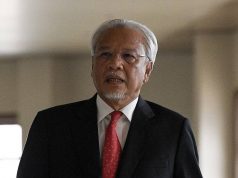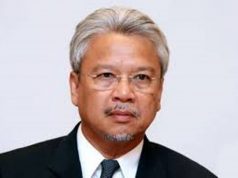PUTRAJAYA, Sept 6- There is a need to develop a happiness index that would encompass wider aspects of well-being as well as levels of society to reflect more accurately the true well-being of the nation.


“However, the GDP is inadequate to measure the well-being of the nation and a new approach to measure well-being effectively is required,” he said.
Ahmad Husni said this in his opening remarks before chairing the 2014 Budget Focus Group Meeting on ‘Developing A Malaysian Happiness Index: Work-Life Balance’ here Thursday.
He said currently the government has some indexes to measure well-being such as Malaysian of Life Index, the Happiness and Family Well-being Index.
“However, the current indexes, which focus on certain aspects, may not be sufficiently comprehensive,” he said.
The minister said recently Malaysia was ranked the 51st happiest country in the World Happiness Report by the Earth Institute that compared different happiness measurements worldwide to create a ‘life evaluation score’.
“To improve on this ranking, it is important that we work on improving the seven components of wellness — economic, environmental, physical, mental, workplace, social and political,” he said.
Ahmad Husni said another important area that would be discussed today was the work-life balance where employees wanted a work-life balance that allowed them to manage responsibilities at home and work.
“Happy workers make a happy nation as well as contribute to economic growth and development,” he said.
He said an area of concern was Malaysia’s low women’s participation rate in labour force and according to Malaysia Economic Report 2012, Malaysia stood at 47 per cent in 2009, much lower than Thailand (70 per cent) and Singapore (60 per cent).
“The inability to achieve work-balance has been identified as the main reason for the low women labour force participation rate,” he said.
Ahmad Husni said the government continued to vigorously address the work-life balance concerns of women to increase their participation in the labour force and enhance their contributions to the economy.
– BERNAMA









